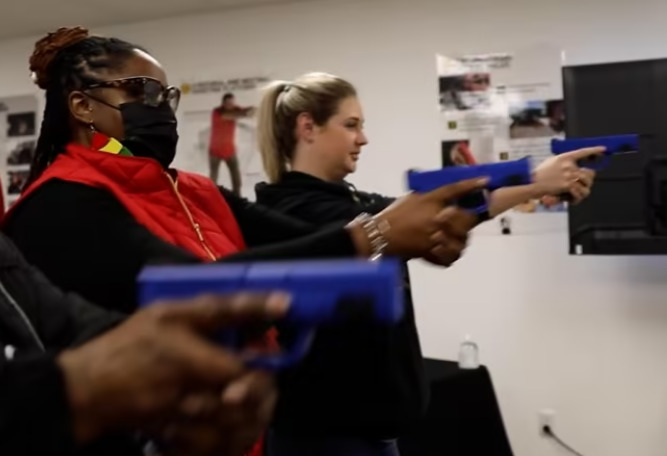While male teens are still more likely to carry handguns than females, the rate at which girls and young women are carrying handguns is rising more quickly, a study published earlier this year in the American Academy of Pediatrics suggests.
That study, which was based on nationally representative surveys conducted annually from 2002 to 2019 of about 300,000 12-17-year-olds, found that about 6.9% of boys reported carrying a handgun at least once in the past year by 2019, up from about 5.5% at the start of the survey period.
The rate for girls doubled, from about 1.1% to about 2.2%.
“This is probably the newest trend,” said the Rev. Kenny Irby, community intervention director for the St. Petersburg Police Department.
In conversations he’s had with young women, they’ve said they no longer want to be “trap queens,” a term with roots in hip-hop culture. They say they're going to be “the queens,” Irby said.
“And so, with those same three p’s of prestige, power and protection, if you're involved in any kind of criminality, the need for a gun is not any different across gender dynamics. It is part of the culture that is glorified in popular culture and in rap music.”
Fear also appears to be a factor in the decision by some girls to carry a gun.
“What I hear from them is, guns are necessary for protection,” said Juan Tabb, executive director of ArtsTech, a youth outreach center in Kansas City.
He went on to tell the story of two young women who spoke of being followed to the bus stop by a couple of men. They were afraid of being attacked and abducted, he said. In a town hall meeting, they asked police to increase patrols on their route to school, Tabb said.
[RELATED STORY: "The extraordinary surge in gun-carrying by teens comes with a heavy cost"]
But in Tampa, Capt. Travis Maus, head of the Violent Crimes Bureau at the Tampa Police Department, is seeing less of a surge in girls with guns.
“Yes, we do occasionally see females carrying guns,” he said. “It’s not super common. If there is an increase, it would look substantial, because the numbers are so low.”
Amanda Stamp, 33, said guns were a natural part of her upbringing. Her father was a law enforcement officer for the Miami Beach Police Department and began teaching her to shoot when she was about 10 years old.
“Going to the gun range, it was always a fun experience for all of us,” she said, adding that she and her sister had their own child-sized headsets and goggles.
It was a tradition for Stamp and her dad to go to the gun range every year for their birthdays. “It definitely became a bonding experience,” she said.
Her father was a stickler for gun safety. “The number one rule in my house is, if you see a gun, don’t touch it. We were taught to treat all firearms as if they were loaded.”
She said her father wanted his wife and two daughters to be able to protect themselves.
“He tried his best to make sure we were never going to be in a bad situation, that we could safely protect ourselves,” she said.
***
Waveney Ann Moore is a St. Petersburg-based journalist who covers diversity and equity issues.
